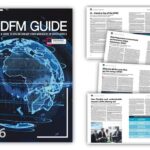Financial wellbeing is a term that describes all aspects of the relationship between money and happiness. It is more than managing money – I’d call that financial resilience. The question of what makes for a happy life is one that has been pondered over throughout the history of mankind. We have a huge amount of knowledge from various sources, including academia, philosophy, psychology, neuroscience and theology.
Over the past 150 years or so, the success of capitalism and the resultant increases in standards of living have made money a central point to our lives. Increasing life expectancy and changes in family demographics means that we now have a future that involves living independently, but without income.
This means that financial planning has become increasingly important to our wellbeing.
Introduction to financial wellbeing
Financial wellbeing is therefore the study of these sources of joy in our lives, and the part that money plays in helping, or hindering, our wellbeing. We can break down this topic of how money affects our wellbeing into four areas:
- The positive impact that is true of all of us.
- The positive impact that is unique to each of us.
- The negative impact that is true of all of us.
- The negative impact that is unique to each of us.
For example, having meaning and a purpose in our lives will bring anyone wellbeing. What that means for each of us, however, will be different.
We also know that there are behaviours we all exhibit which lead to poor financial outcomes. The knowledge from the relatively new world of behavioural finance should be applied to all aspects of financial decision-making, not just investment management.
Then we each have our own self-limiting beliefs about money which have developed through our experiences.
Understanding the research is therefore one step in applying financial wellbeing theory. Understanding ourselves and how this knowledge should be best applied to each client is the other step.
The general truths
There are five pillars of financial wellbeing that are true of all of us (note: all references on the sources of the research for anything mentioned in this article are in my books):
- Having a clear path to identifiable objectives.
- Control of our daily finances.
- Having financial options.
- Protection from financial shocks.
- Clarity and security for those that we leave behind.
Some of these – daily finances and financial shocks – constitute financial resilience. Some are more practical in nature. That clear path, for example, could easily translate into cash-flow forecasting.
Others are a little harder to pin down. Do we have more options as our finances grow? Yes, to a point. If you have very little, then a roof over your head and something regular to eat will clearly increase wellbeing. The extent to which this continues as wealth grows, however, is much more questionable. The answer to the question does more money make you happier is yes, if you need money to be happy.
If that extra money can buy you shelter and security, clearly it is going to make a difference. Once you reach the point where more money is just buying bigger things, or things bought just to show you have money, then the additional wellbeing is limited or even negative.
Which brings us to those identifiable objectives, something I feel is the key to the relationship between money and happiness.
Self-worth
If we gain our self-worth from external sources, such as approval or status, then our self-worth is dependent on others. If, on the other hand, self-worth comes from internal sources, such as living a life with meaning and purpose, then this is both more achievable and longer lasting.
Take that classic trope of wealth, the expensive car. A person whose self-worth comes from external sources will drive an expensive car down the street and enjoy the admiring glances. However, this will only give them a sense of self-worth if the glances continue. Once they have passed that admiring pedestrian, they need to find another to drive past for their self-worth to be nurtured.
A different person may buy that expensive car because they just love cars. Perhaps it is their hobby and love the car for how it drives and how the car itself makes them feel.
For a financial plan to help a person to be happier not just wealthier, therefore, those identifiable objectives should include things that will bring the client wellbeing. For me, this is the major shift in the role of the financial planner; to both educate clients, and to help them identify objectives that will bring them joy.
The why
When I wrote the original Financial Wellbeing Book back in 2015, I Googled the term to make sure that nobody had used it for the title for a book before. There were two results from that search. When I Googled the term nine years later, there were 320-million results.
There are several reasons why adopting a financial wellbeing-oriented approach to financial planning is becoming essential.
In 2021, Aegon UK undertook a survey of many thousands of its customers, both direct consumers and advisors. A total of 72% of consumers said that they wanted advisors to discuss their life objectives with them. However, only 32% of advisors thought that this is what customers wanted.
There are several reasons why adopting a financial wellbeing-oriented approach to financial planning is becoming essential. The first is that the two statistics above show us that financial wellbeing is the direction of travel for financial advice and planning.
An upgrade to V3
I think of financial advice as the provision of guidance in relation to the technical aspect of money, such as managing investments and tax planning. I think of this as version 1.
Financial planning is version 2. In addition to technical advice, it adds cash-flow forecasting. As well as looking at “now”, we are also looking to the future.
Financial wellbeing is version 3. It is an upgrade. In addition to technical knowledge and future planning, it brings two things: understanding and applying knowledge on the relationship between money and happiness. And interpersonal skills (more on this later).
A case study
Let us take a client of a financial advisor. They have received tax planning and investment advice, started savings and set up protection plans. They are a happy client. Suppose that advisor then retired, and the client moves to someone who, in addition to advice, also does financial planning. The client now gets a cash-flow forecast and a path to their future. I would suggest that this client is very unlikely to go back to just financial advice.
This financial planner also then retires. The client moves to a new planner, one who adopts a financial wellbeing approach. Now, they get an advisor who is also knowledgeable and skilled in helping them understand what is likely to bring them wellbeing in the future.
They may review their objectives, widen those objectives from just a bucket list, increase their connectivity with loved ones and enable an increase in meaning and purpose. Now the financial plan creates a path to a future that the client didn’t know was possible before they went to see the planner.
I would suggest that someone who goes to a financial wellbeing-oriented planner is unlikely to go back to just a planner or advisor.
The how
There are two areas of development that a financial planner needs to upgrade to a financial wellbeing approach.
The first is education. This should be for themselves, to understand the research about the sources of wellbeing in our lives, and how money both helps and hinders this. It is also important to educate clients. Clients need to be prepared for a conversation with their planner which is about their wellbeing, not just their wealth. Helping clients to change behaviours and understand their self-limiting beliefs. This starts with understanding why they act in ways that may be creating poor financial outcomes.
The second is for advisors to develop their listening and questioning skills. Clients very often do not understand themselves and being better at these coaching skills will help advisors to help clients recognise those identifiable objectives.
Conclusion
Being happy is not easy. Wellbeing takes effort, both to achieve and maintain. Money has a crucial part to play in this process. This is why I believe that financial wellbeing, in its broadest sense, is the direction of travel for financial planning.
 Chris Budd, former financial planner and founder of Ovation Finance Ltd, author and founder of the Institute for Financial Wellbeing.
Chris Budd, former financial planner and founder of Ovation Finance Ltd, author and founder of the Institute for Financial Wellbeing.
Chris has written two books on money and happiness, the original Financial Wellbeing Book and The Four Cornerstones of Financial Wellbeing. He also founded the Institute for Financial Wellbeing and has developed training courses for advisors on the subject.
Chris Budd will be speaking at the Money Maestros Conference in South Africa in October.












